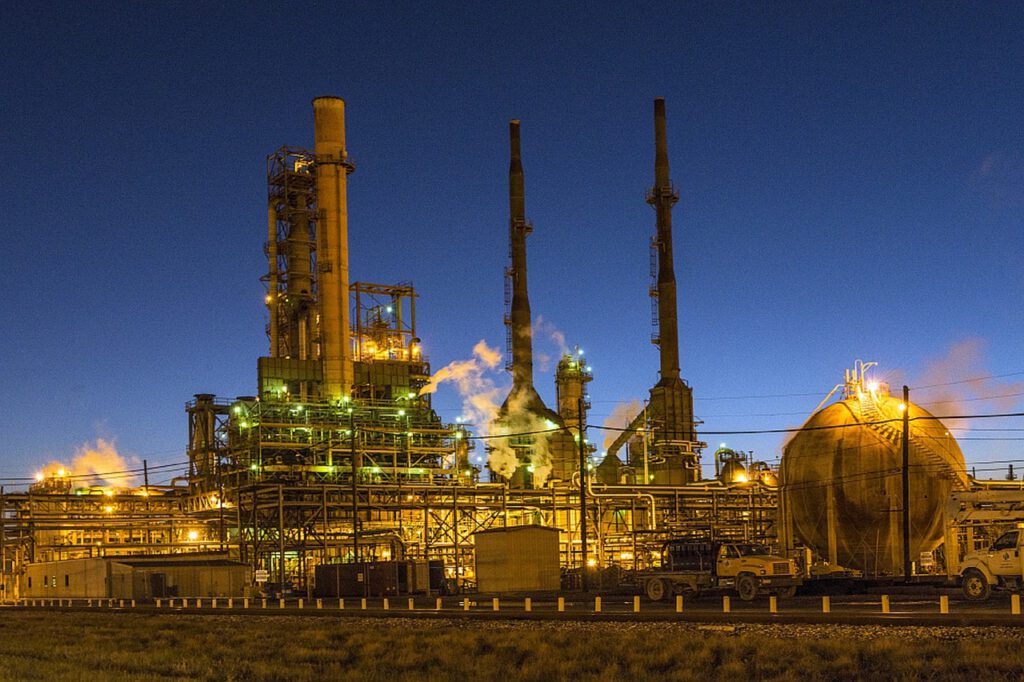India Foster, Project Administrator, Department of Sociology, University of Warwick, UK
“It is universally considered just that each person should obtain that (whether good or evil) which he deserves; and unjust that he should obtain a good, or be made to undergo an evil, which he does not deserve. This is, perhaps, the clearest and most emphatic form in which the idea of justice is conceived by the general mind.” (John Stuart Mill, Utilitarianism, 1861, Ch. 5, paragraph 7 ).
When I saw the job advert for the position for Project Administrator on the ERC project ‘Toxic Expertise: Environmental Justice and the Global Petrochemical Industry’ at the University of Warwick, I was excited. I was happy with my current job as a Projects Coordinator in the Physics Department. I got on well with my colleagues and had a nice, permanent contract. However, I wanted to work on a project that I could engage with, one that I could understand. And not just with the subject area but with the point of the project, its overall goal. I am no expert on toxic pollution or environmental justice, in fact I am a complete novice, but I do understand the language . In fact, the very notion of ‘expertise’ – including the importance of recognizing ordinary people’s knowledge– is something that this project would tackle directly.
So, upon reading the job advert, I quickly started doing some reading. When I learned about environmental disasters at Love Canal and Cancer Alley, I was stunned. For me the statistics of a place like ‘Cancer Alley’ manage to speak for themselves in many ways. 85 miles and 136 petrochemical factories and 7 oil refineries. At this point, I didn’t know very much, and I wasn’t particularly sure about what petrochemicals even are. But I knew those stats could not be good and that I would not want to move to such a place. Images of smog filled skies, metal structures, chimneys and just sheer, thick, suffocating pollution came to mind.
As it turns out, many photographs of Cancer Alley do portray these images. All the images my mind conjured up weren’t a million miles away from the reality. But thrown into this toxic landscape was the addition of residential housing. Miles and miles of it; playgrounds, schools, shops and parks, just a short walk away from a sprawling mass of toxic industry. Not surprisingly, I discovered, these houses are not occupied by society’s elites, but by poor, predominantly African-American residents, and this echoes patterns of environmental injustice around the world.
For me the statistics of a place like ‘Cancer Alley’ manage to speak for themselves in many ways. 85 miles and 136 petrochemical factories and 7 oil refineries.
But despite the injustice of petrochemical landscapes, it isn’t simple. This isn’t an industry we can easily downsize. We can’t stop its growth, and at the moment I’m not even sure that we would want to. Petrochemicals, as it turns out, form the basis of so many everyday, arguably essential and important products. Whilst I doubt I will ever understand the processes involved (much like when I was in the Physics Department, science just isn’t my forte, and trust me I tried!) I do understand the products. They are tangible, they are familiar, and in fact they are all around me.

Pixabay
Plastics, fabrics, car parts, cosmetics, rocket fuel , pharmaceuticals, clothing, computer parts, detergents, paint. The list goes on and on and we can’t forget that petrochemicals are derived from petrol, which I can thank for getting me to work on time today.
Despite my initial shock at the scale of pollution of petrochemical complexes, I ended up concluding that we do need petrochemicals, and that the industry provides millions of jobs. In fact, I think it would be difficult to calculate how many jobs. From the people that extract the oil to those that work in the refineries, the managers, the sales teams…all the staff within any company that produces or sells any of the products (and the many more) in the list above.
Going back to how I joined the project then, I think it’s more of a ‘why?’ than a ‘how?’, as I joined the project because something about being involved with it makes me feel like a better person. Ultimately, that’s it. The subject matter is interesting and I want to know more. The reasons for the project are compelling and convincing. What the project is aiming to achieve is in my opinion both vital and beneficial.
Having studied Politics and Philosophy and then an MA in Global Law at university, the language isn’t alien to me (unlike degree level Physics, oh who am I kidding, GCSE level Physics!) and I understand concepts like Environmental Justice. Having studied modules such as Ethics and Justice, Morality, Globalisation and Cosmopolitanism I find the arguments surrounding areas such as Cancer Alley fascinating.
I started to contemplate social justice. Is it socially just that these areas are in existence? These areas with higher rates of cancer and many serious and minor illnesses in general, poverty stricken areas that are home to the petrochemical industry. Well, I knew somewhere in the depths of my brain there must be some actual theory that I remember from university.

Upon reading some articles online (thank you Google, and those nice plastic keys I am tapping on, probably made up with some petrochemicals ) the memories started getting excited.
Is it socially just that these areas are in existence? These areas with higher rates of cancer and many serious and minor illnesses in general, poverty stricken areas that are home to the petrochemical industry.
John Stuart Mill argued that most of us have an intrinsic desert based understanding of justice. We believe it’s ‘just’ to get what we ‘deserve’ – (i.e. our ‘just deserts’). We believe this applies to all people. If you work hard, it’s ‘just’ to be rewarded. If you steal someone’s car, it’s ‘just’ to be punished. Basically we mostly believe things to be ‘just’ if they are deserved. The ‘deserts’ can be good or bad and they can be of our own doing or a random occurrence. If a convicted killer was to win the lottery, then most of us would find this unjust. The killer won the lottery by chance, so they didn’t even work hard for it and that makes this situation even more unjust. If a student works all hours and pours their soul into an assignment, they may believe it’s unjust that they received a C and not an A. But it may be that their assignment really was of a C standard. The C was fair and once the student understands that their C grade was fair they probably won’t feel anymore injustice, disappointment maybe, but not injustice. So it could be argued that most of us (or Mill’s ‘general mind’) believe that justice is desert based and that it needs to be fair.
Is it fair that the people of Niagara Falls unknowingly sent their children to a school built on toxic waste? Is it fair that people live in places dubbed as Cancer Villages and known as Cancer Alley? That their neighbourhoods have and continue to be transformed into toxic hot spots? Well, according to the way most of us understand ‘justice’ it’s only fair if the residents ‘deserve’ it. Unlike the many complicated arguments surrounding this project, for me the answer to this question is simple. No, they don’t. I could go on and attempt to bring in many more philosophical arguments or I could delve further into concepts such as desert based justice. However, within this short article and having only just become reacquainted with philosophical theories (after shamefully not giving ‘theory’ much thought the past ten years) I can only touch upon such concepts. But for me just this brief dalliance with some social justice theory has helped to further illuminate the injustice.
Is it fair that people live in places dubbed as Cancer Villages and known as Cancer Alley? That their neighbourhoods have and continue to be transformed into toxic hot spots? Well, according to the way most of us understand ‘justice’ it is clearly not.
Finally, this ‘injustice’ is why I am thrilled to be working on Toxic Expertise. I get to learn loads, I get to help create new knowledge to share, and new solutions to problems. This project will hopefully benefit many people and will help to ensure there is a little bit more justice in the world and that people are treated more fairly.
(Featured images: credit to Pixabay)
